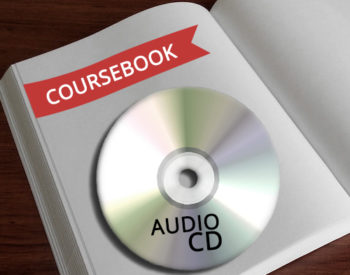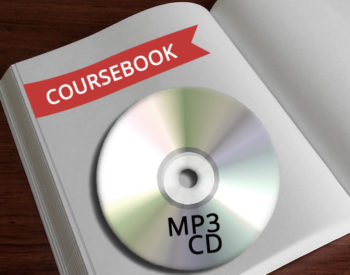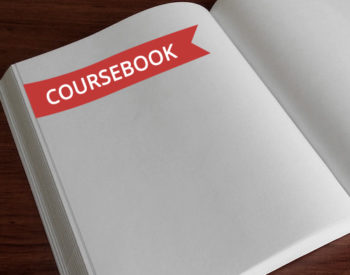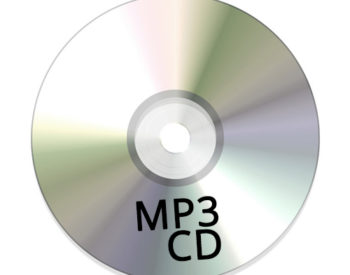How to do Direct & Cross-Examination of Expert Witnesses 2015
* Presenting and/or challenging interview data * Spotting and/or exploiting indicia of bias * Maximizing and/or minimizing the impact of DSM diagnoses * Presenting and/or challenging psychological testing data
We will start the day with a discussion of direct and cross-examination in the context of presenting and challenging expert mental health testimony in a contested custody proceeding. This WILL NOT be an overview of general principles but will focus on such specific issues as: * Presenting and/or challenging interview data * Spotting and/or exploiting indicia of bias * Maximizing and/or minimizing the impact of DSM diagnoses * Presenting and/or challenging psychological testing data Next we will turn our attention to a "model" forensic report which will be the subject of the trial demonstration that follows. The report will be dissected by forensic psychologist Jeffrey P. Wittmann, Ph.D. using the Custody Assessment Analysis System (CAAS) model. The CAAS is an advanced assessment protocol that enables attorneys to determine strengths and weaknesses of the report in FOUR KEY DIMENSIONS: (1) relationship management; (2) data adequacy; (3) technique adequacy; (4) reasoning adequacy. The model report that we will use is based on forensic reports encountered from decades of experience in contested custody litigation. It will be sent to you in advance of the program so you can do your own analysis and then compare your conclusions with those presented at the program! There will then follow a series of actual testimonial demonstrations illustrating how the principles detailed in morning lectures are applied to developing effective direct and cross-examinations of three types of mental health witnesses encountered in litigation: * The court-appointed forensic evaluator * The peer-review expert critiquing forensic work-product * The therapist-witness We will present the demonstrations in annotated style, interjecting throughout the questioning to explain exactly what strategies or techniques are being employed and why they are being used, as well as the pros and cons of those approaches.
7 Professional credits (MUST purchase BOOK & AUDIO to receive credit.)
The weekly updates alone are worth the tuition!Phyllis E. Simon, New City, NY
Agenda
I. Presenting and/or challenging interview data
II. Spotting and/or exploiting indicia of bias
III. Maximizing and/or minimizing the impact of DSM diagnoses
IV. Presenting and/or challenging psychological testing data
Purchase Options
About The Authors
 Timothy Tippins Esq.
Timothy Tippins Esq.
Timothy M. Tippins, Esq. is an adjunct professor at Albany Law School and serves on the faculty of the American Academy of Forensic Psychology and on the Affiliate Postdoctoral Forensic Faculty at St. John’s University. He has also served as an Adjunct Professor of Forensic Psychology at Siena College. He is a private practitioner who has engaged in matrimonial and family law practice since 1975 and devotes his practice exclusively to serving as trial counsel and consultant to other family law practitioners on a nationwide basis, with special emphasis on the presentation and cross-examination of expert mental health testimony. Tippins has served in all major professional leadership positions in the New York family law community, including President of the American Academy of Matrimonial Lawyers - New York Chapter, Chair of the NYSBA Family Law Section, and Chair of the NYSBA Task Force on Family Law. Tippins is a regular feature columnist for the New York Law Journal and is the author of the multi-volume treatise New York Matrimonial Law & Practice (West Publishing).
Company Name: MatLaw Systems Corp.
E-mail: tmtippins@matlaw.com
 Lauren K. DeLuca, Esq. has been engaged in a private practice focused on complex matrimonial cases, custody litigation, and enforcement proceedings since graduating from Albany Law School. She has extensive experience with evidentiary hearings and depositions, net worth preparation and analysis as well as discovery management. Recently, she partnered with Cynthia J. LaClair, Esq. (formerly Cynthia J. Tippins, Esq.) to form LaClair & DeLuca, PLLC, a practice located in Albany, New York which is limited to family and matrimonial law. Ms. DeLuca is a member of the New York State Bar Association and the Albany County Bar Association. She has published in various professional journals such as the New York City Law Review and has presented at a number of MatLaw Seminars.
Lauren K. DeLuca, Esq. has been engaged in a private practice focused on complex matrimonial cases, custody litigation, and enforcement proceedings since graduating from Albany Law School. She has extensive experience with evidentiary hearings and depositions, net worth preparation and analysis as well as discovery management. Recently, she partnered with Cynthia J. LaClair, Esq. (formerly Cynthia J. Tippins, Esq.) to form LaClair & DeLuca, PLLC, a practice located in Albany, New York which is limited to family and matrimonial law. Ms. DeLuca is a member of the New York State Bar Association and the Albany County Bar Association. She has published in various professional journals such as the New York City Law Review and has presented at a number of MatLaw Seminars.
Ronald J. Bavero has been practicing in the field of matrimonial and family law for over twenty six years. Mr. Bavero is a highly experienced and respected trial attorney who has handled complex litigation in the various courts of this state. Presently, Mr. Bavero maintains a traditional matrimonial practice (The Law Offices of Ronald J. Bavero, LLC) and a Litigation Support Service Business (PREPMYCASE, LLC) through which he offers strategic litigation advice and trial preparation services to other attorneys handling matrimonial actions. Mr. Bavero has been listed in Super Lawyers as a top attorney in the New York Metro area in the years 2007 through 2015; Top Attorneys in Westchester (2007 through 2015); Martindale-Hubbell's AV Preeminent Rating; Who's Who in American Law and Who's Who in Legal Educators. He is a Fellow of the American Academy of Matrimonial Attorneys and a former member of the Executive Committee of the New York State Bar Association, Family Law Section, former Co-Chair of the Family Law Section Committee on Judicial Relations and was the former Chair of the Westchester County Bar Association Family Law Committee.
E-mail: rbavero@baverolaw.com
 Dr. Jeffrey Wittmann
Dr. Jeffrey Wittmann
Dr. Wittmann is a licensed psychologist and trial consultant whose practice concentrates on trial support for attorneys in custody and access matters and on forensic work-product reviews. He serves as a consultant for major law firms nationally and has provided custody evaluation services both at county clinics and in private practice since 1985. He previously held an appointment as Adjunct Clinical Professor at SUNY Albany where he taught forensic psychology at the doctoral level. Dr. Wittmann is a recognized expert on the intersection of law and psychology, on professional practices in the child custody area, and on Frye/Daubert issues related to expert testimony in family matters. He is regularly on the faculty for training seminars offered to attorneys and mental health professionals, and has been a frequently utilized scholar-trainer for judges in Family, Supreme, and Appellate courts in New York and elsewhere nationally. Dr. Wittmann is on the editorial board of the Matrimonial Strategist and previously served on the board for the Journal of Child Custody. He is the author of “Custody Chaos, Personal Peace” (Perigee, 2001) and of numerous professional articles regarding forensic psychology. Together with Timothy Tippins Esq., he is the author of Empirical and Ethical Problems with Custody Recommendations: A Call for Clinical Humility and Judicial Vigilance, an award-winning article published in the Family Court Review in 2005 that generated widespread scholarly debate and that is a frequently-used template for critiquing the custody evaluation process. His CAAS model for analyzing child custody evaluations is the first comprehensive tool designed specifically to assist attorneys in negotiations and trial preparation, a model he outlines in his book entitled "Evaluating Evaluations: An attorney's Handbook for Analyzing Child Custody Reports" (MatLaw, 2013).







 Timothy Tippins Esq.
Timothy Tippins Esq.
 Dr. Jeffrey Wittmann
Dr. Jeffrey Wittmann